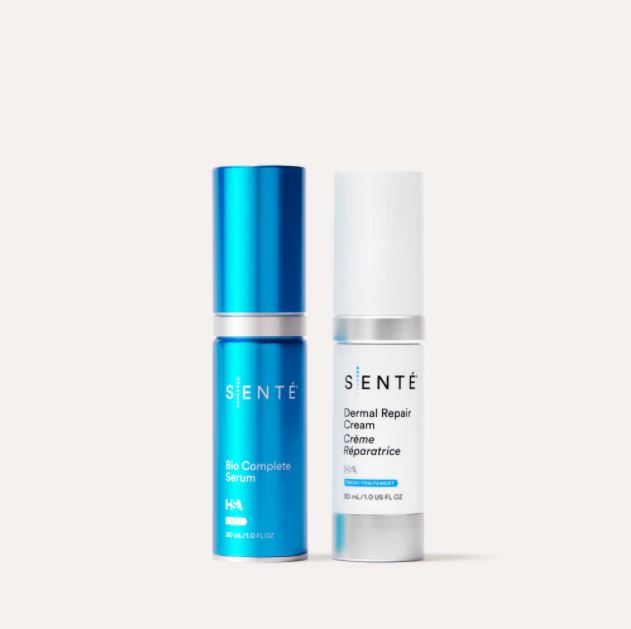We all want to look and feel our best, but years of sun exposure, pollutants, stress, and other internal and external factors can take their toll, leading to skin that may no longer have that smooth, firm, youthful appearance. Whether you’re just starting to see the signs of aging or you have deep wrinkles, it’s never too early or late to get started with an anti-aging skincare routine. According to Dr. Jennifer Sawaya of U.S. Dermatology Partners in Scottsdale, Arizona, “When it comes to amping up your anti-aging skincare routine, prevention is essential. By changing up your daily routine, you can prevent or slow the development of common signs of aging like fine lines, wrinkles, and age spots. You should also visit your dermatologist to create a custom skincare plan and discuss possible treatment options to turn back the clock.” You can learn more about improving your anti-aging skincare routine in this blog.
What are the Best Anti-Aging Skincare Products?
Any good anti-aging skincare routine begins with the right products. Dr. Sawaya says, “Your best bet is to talk to a dermatologist about which products will be best for your skin, but there are some ingredients and types of skincare products you can look for to slow the signs of aging and improve the overall appearance of your skin at any age.”
Whether you’re just starting to see signs of aging or you’re trying to prevent the development of new wrinkles and age spots, consider the following skincare steps:
- Minimize exposure – Limit time in the sun, avoid environmental irritants, and do whatever you can to keep your skin smooth and healthy.
- Wear sunscreen and sun-protective clothing and hats – By protecting skin from the sun’s UV rays, you not only decrease your risk for skin cancers, but you’ll also prevent accelerated aging caused by sun exposure.
- Use Antioxidants – Serums with vitamin C and other antioxidants boost the production of collagen, which can help to heal and strengthen skin and protect from damaging pollutants and the sun’s UVA and UVB rays.
- Vitamin B3 – This ingredient can help reduce the risk of skin cancer when taken orally, and when used topically can augment the benefits of an antioxidant and help with redness.
- Vitamin B5 – If you’re noticing puffiness and inflammation, vitamin B5 can help soothe the skin. It’s also great for healing and skin cell regeneration.
- Hyaluronic acid – If you’re noticing skin is drier as you age, look for products with hyaluronic acid that helps retain moisture.
- Retinol – Products with retinol increase the production of collagen to smooth fine lines and wrinkles, exfoliate the skin, and improve skin tone and texture.
- Alpha hydroxy acid – This ingredient helps to get rid of dead skin cells and encourages the growth of healthy, new skin cells.
- Growth factors – Products that contain growth factors promote the production of collagen and elastin.
Morning Anti-Aging Skincare Routine
For best results, consult with a dermatologist to create a personalized skincare routine, but a basic morning anti-aging skincare routine may include:
Step 1 – Cleanser
Use cool water and a gentle cleanser to clean skin without stripping too much moisture from it. You don’t have to invest a lot of money in a cleanser. Just pick a gentle facial cleanser that will clean the skin without causing any unnecessary irritation or stripping of the skin’s moisture barrier.
Step 2 – Exfoliation
Dr. Sawaya says, “After cleansing, I do not recommend the use of traditional toners. These often contain alcohol and can remove moisture from the skin and increase redness and inflammation. I do, however, recommend the occasional use of an exfoliating pad with alpha-hydroxy acids after cleansing in the morning. Depending on your skin type, these may be used once weekly or as often as every day.”
Step 3 – Treatments and Serums
Once you’ve cleansed and exfoliated, you should apply any prescription topical treatments for acne, psoriasis, eczema, and other chronic skin conditions. Then, layer on serums containing growth factors, antioxidants, and collagen-building peptides.
Step 4 – Moisturizer
Look for moisturizers that contain hyaluronic acids and ceramides. These ingredients are specifically geared toward improving the hydration and health of aging skin. For those with very dry skin, facial oils may offer an added benefit.
Step 5 – Eye Cream
The addition of a high-quality eye cream can also be helpful early on for protecting this delicate area. Dr. Sawaya says, “I recommend choosing an eye cream with ingredients to target your specific concerns. For example, I recommend brightening peptides and antioxidants for dark circles, caffeine for puffiness, and hyaluronic acid for dryness.”
Step 5 – Sunscreen
The main cause of skin aging is sun damage. Make sure to protect your skin from sun damage by applying a broad-spectrum sunscreen that protects against both UVA and UVB rays. The best choices are sunscreens with physical blockers such as zinc oxide and titanium dioxide. It is important to choose a sun protection factor (SPF) of 30 or higher every day. Remember to reapply every 2 hours while outdoors, and more often when in water.
Nighttime Anti-Aging Skincare Routine
Daytime skincare focuses on protecting skin for the day ahead. Your nighttime anti-aging skincare routine is all about healing and rejuvenation. Everyone’s routine should be customized to their unique needs, but a basic nighttime skin regimen should include:
Step 1 – Cleanser
Remove your makeup, using a gentle makeup remover. Then, use a simple, minimal ingredient cleanser to clean your face.
Step 2 – Retinols & Serums
Retinol offers a one-two punch of anti-aging benefits. It prevents new wrinkles from forming and also diminishes the appearance of existing fine lines, wrinkles, and age spots. Additionally, retinols improve overall skin tone and texture and increase cellular turnover. It’s never too soon to start using retinol, but if you have sensitive skin talk to your dermatologists about the best retinol products before you add these to your skincare routine. Consider applying a hydrating serum to help the skin retain moisture before you apply your moisturizer.
Step 3 – Moisturizer
At night, you may want to use a thicker, cream-based moisturizer with peptides and ceramides to replenish moisture lost during the day and keep skin looking and feeling hydrated and supple.
Step 4 – Eye Cream
At night, I recommend the application of an eye cream that contains extra hydration with hyaluronic acid or even natural oils such as avocado. I also recommend the use of retinol in nightly eye creams for an added anti-aging benefit.
What Should I Add to My Anti-Aging Skincare Routine?
Dr. Sawaya says, “Every patient starts to show signs of aging differently and will need different skincare treatments to address their signs of aging. No matter what the patient’s age, I always recommend keeping daily skincare simple, so you’re more likely to be consistent. However, as you get older, you might want to add a few extra anti-aging treatments or consider some cosmetic dermatology services in our office to keep your skin looking great.” Some commonly recommended anti-aging skincare steps include:
- Face masks – Once a week, consider applying a face mask that targets your specific concerns. There are a variety of at-home masks available, so find one that offers anti-aging benefits, pore cleansing, or deep hydration to soothe inflammation and boost skin’s appearance.
- Skin supplements– It’s important to ensure your skin is healthy from the inside out. That means staying hydrated and possibly adding an oral skin health supplement to your daily routine. These supplements help provide the necessary nutrients for your body to produce healthy new layers of skin.
- Cosmetic dermatology– From dermal fillers and neurotoxin injections to chemical peels and laser treatments, there are numerous cosmetic dermatology solutions available to help improve the appearance of existing fine lines, wrinkles, dark spots, and other signs of aging.
How Can My Dermatologist Help?
At any age, your skin is uniquely yours, and a board-certified dermatologist can help you create a customized skincare plan. According to Dr. Sawaya, “Giving general skincare recommendations based on age or a few other details can be beneficial, but the best routine for you is always one that’s personally geared to addressing your unique skin type, tone, texture, and other variables. I always recommend that patients visit us at least once a year for an annual skin exam where we’ll check for skin health concerns, review skincare regimens, and discuss plans for keeping skin looking and feeling great for years to come.”
If you’re ready to schedule an annual exam with Dr. Sawaya or one of the other skilled dermatologists at U.S. Dermatology Partners, you can get started anytime by completing our online scheduling request form. Once our team hears from you, we’ll be in touch to finalize the details of your visit.
Find a location near me
or



